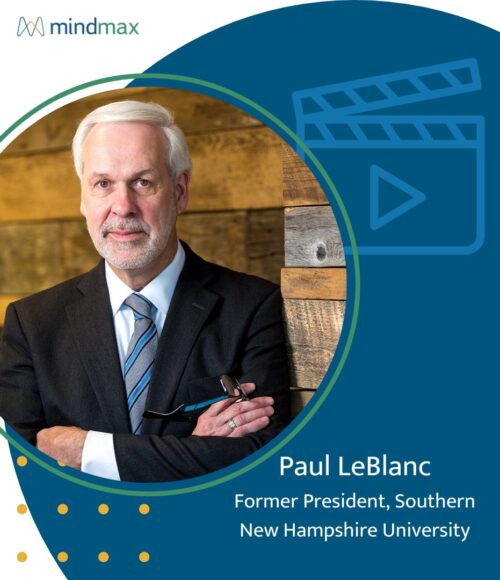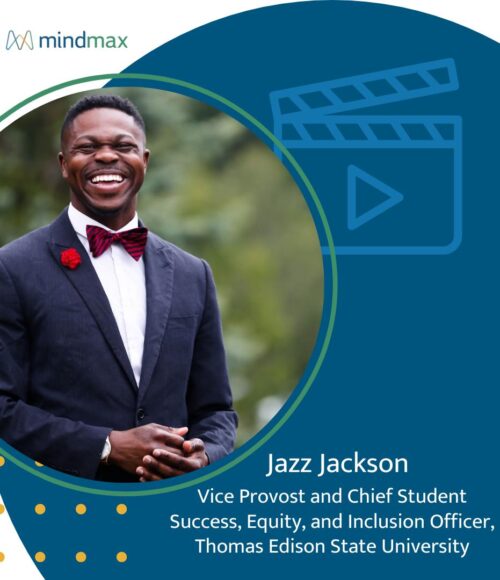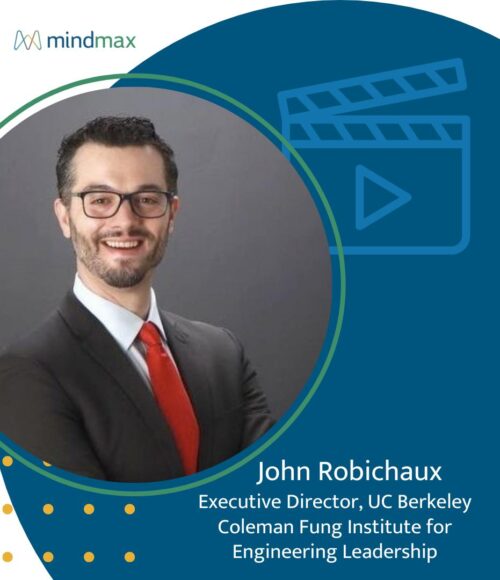Paul LeBlanc Wants Higher Ed to Put Students First

Paul LeBlanc Wants Higher Ed to Put Students First
In a conversation with MindMax’s Lee Maxey, Paul LeBlanc, former president of Southern New Hampshire University, shares his transformative approach to higher education. Dr. LeBlanc emphasizes the importance of putting students at the heart of all institutional decisions, reflecting on how his own experience as a student shaped his leadership.
Dr. LeBlanc recalls this about his teachers: “They really made me feel like I mattered. They gave me their time; they lifted my sights; they helped me dream bigger dreams for myself. I think that’s the essence of all great teaching.”
This philosophy has driven the student-first innovations at SNHU, where policies are designed to meet the real needs of students, especially working adults.
Watch the full conversation.
Participants:
– Lee Maxey, CEO, MindMax
– Paul LeBlanc, former president, Southern New Hampshire University
Core Themes:
– Taking a student-first approach in higher education.
– The transformative power of teaching and the personal impact of great teachers.
– Adapting education to meet diverse student needs.
– The evolving role of technology, including AI, in education.
Key Concepts Covered:
– The profound impact of teachers who invest in their students, illustrated by Dr. LeBlanc’s recollections of three educators who inspired his focus on student-centered education.
– Practical measures taken at Southern New Hampshire University to support students (e.g., facilitating transcript retrieval for transfer credits).
– Structural inequities in education (e.g., the limitations of the credit hour system in determining federal financial aid eligibility).
– The diverse landscape of higher education and the roles of community colleges, elite institutions, and emerging educational models like microcredentials.
– The shift toward prioritizing skills and competencies over traditional knowledge in education.
– The evolution of technology in education, including the benefits and risks associated with increased connectivity and engagement in learning.
– The need for higher education institutions to adapt their methodologies while maintaining core mission values in response to changing student needs.
– Higher education’s transformative potential beyond job preparation, emphasizing the importance of a human-centered approach that prioritizes meaningful relationships between advisors and students.
Related Ideas
Jazz Jackson Wants to Help Every Student Finish What They Start

John Robichaux Wants Lifelong Learning to Drive Public Impact
